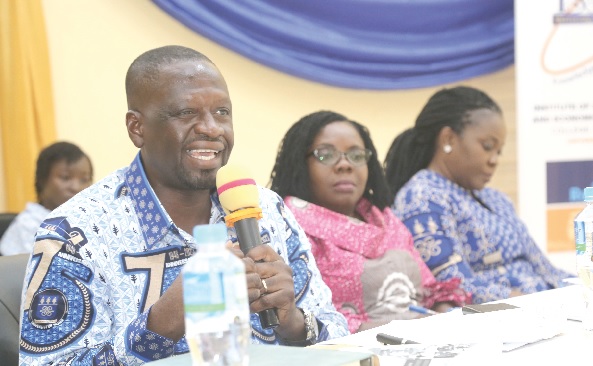
eCook technologies cost effective than charcoal, LPG — Study
ELECTRONIC cooking technologies such as Electric Pressure Cooker (EPC) and rice cooker are more cost effective than traditional methods.
This was the outcome of practical cooking experiments using electricity, charcoal and Liquefied Petroleum Gas (LPG) fuels for selected dishes such as jollof, fried chicken, banku, okro soup, ampesi, palava sauce and beans with fried plantain in an experiment.
It formed part of a study conducted by the Institute of Statistical, Social and Economic Research (ISSER) on clean cooking.
For instance, GH¢2 was expended on LPG for the ampesi meal; GH¢2.37 for charcoal, 61 pesewas and 95 pesewas for EPC and rice cooker respectively.
The findings also showed that eCook technologies emitted zero carbon monoxide as compared to charcoal improved cooking stove and LPG stove.
And among the eCook technologies, EPC was more efficient than the rice cooker.
Project
The study was conducted under a modern energy cooking services (MECS) project, and the results made known at a dissemination workshop in Accra on Thursday.
The project which is in its second phase was funded by the World Bank.
The first phase (2020-2021) sought to understand and build local knowledge on the dynamics of cooking behaviours and cooking energy services among stakeholders in the country, while the second phase (2022-2023) demonstrated empirically through experiments and surveys the efficiency, financial, health, environmental benefits and overall livelihood improvements associated with MECS.
Experiment
The Project Coordinator, Innocent Agbelie, said the ISSER team partnered with the CSIR-IIR for the cooking experiment, where four cooks were assigned one of the meals and each meal was cooked three times using the selected fuels.
“In view of the willingness of people to accept the eCook technology, out of 1200 households sampled, nearly 80 per cent said cooking with electricity was expensive,” he said.
The study recommended that affordable and reliable electricity must be maintained, while substandard products should be prevented from entering the market.
It also encouraged partnership between local and international manufacturers to localise eCook technologies.
Electric cooking, less expensive
A Senior Research Fellow and Head of Statistics and Survey Division at the ISSER, Dr Simon Bawakyillenuo, said the study had de-mystified the assertion that using electricity in cooking was expensive.
He urged the government to consider reducing taxes on eCook technologies to help upscale such technologies at the household level.
The Head of the Geography Department, University of Ghana, Prof. Nana Charlotte Wrigley-Asante, said some other studies had stated that household air pollution was directly linked to respiratory tract cancers such as chronic lung diseases.
She also said that the project was in line with the Sustainable Development Goal Seven that hinged on affordable, reliable, sustainable and modern energy for all by 2030.
The Director of ISSER, Prof. Peter Quartey, called for more people to be educated in the local languages about the benefits of eCook technologies.
For his part, an energy consultant with the World Bank, Alex Donyinah, commended ISSER for their contribution towards clean energy, and expressed the bank’s commitment to continue to support projects that would ensure universal access to clean and modern energy solutions.
